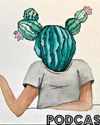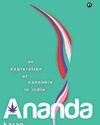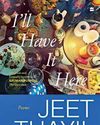
WHEN ASTRID LINDGREN, the famous children’s author, ran up against the crushing Swedish tax laws, she fought back with the most effective weapon of all—her talent as a storyteller.
On a cold autumn night in Stockholm in 1941, a seven-year-old girl named Karin, who had been bedridden for weeks with a lung inflammation, called out to her mother. Karin had run through all the stories her parents knew, and she was beginning to wear out her mother’s patience. So when Astrid Lindgren came into her daughter’s room, she announced she was out of stock of stories and that Karin would have to produce a subject. Her daughter paused a moment, then blurted, “Tell me about Pippi Longstocking!”
Astrid Lindgren had never heard that peculiar name before, because Karin had just invented it. But sitting at her daughter’s bedside, she began to tell about a pig-tailed little girl who is strong enough to carry a horse, lives alone with a monkey named Mr Nilsson, sleeps with her feet on the pillow and generally does what no-one else would dare do.
That’s Pippi. And that was how Astrid Lindgren, then 34 and wife of Sture Lindgren of the Swedish Motorists Association, accidentally started a career that would make her the author of some 60 children’s books. Pippi has been translated into 28 languages (including Japanese, Afrikaans and SerboCroatian). In the Soviet Union, where more than 2.2 million Astrid-Lindgren books are in print, they are handed from child to child until they are dogeared. Pippi has even leapt on to the screen as the heroine of an immensely popular movie and later as the star of an international television series.
Bu hikaye Reader's Digest India dergisinin March 2021 sayısından alınmıştır.
Start your 7-day Magzter GOLD free trial to access thousands of curated premium stories, and 9,000+ magazines and newspapers.
Already a subscriber ? Giriş Yap
Bu hikaye Reader's Digest India dergisinin March 2021 sayısından alınmıştır.
Start your 7-day Magzter GOLD free trial to access thousands of curated premium stories, and 9,000+ magazines and newspapers.
Already a subscriber? Giriş Yap

ME & MY SHELF
Siddharth Kapila is a lawyer turned writer whose writing has focussed on issues surrounding Hinduism. His debut book, Tripping Down the Ganga: A Son's Exploration of Faith (Speaking Tiger) traces his seven-year-long journey along India's holiest river and his explorations into the nature of faith among believers and skeptics alike.

EMBEDDED FROM NPR
For all its flaws and shortcomings, some of which have come under the spotlight in recent years, NPR makes some of the best hardcore journalistic podcasts ever.

ANURAG MINUS VERMA PODCAST
Interview podcasts live and die not just on the strengths of the interviewer but also the range of participating guests.

WE'RE NOT KIDDING WITH MEHDI & FRIENDS
Since his exit from MSNBC, star anchor and journalist Mehdi Hasan has gone on to found Zeteo, an all-new media startup focussing on both news and analysis.

Ananda: An Exploration of Cannabis in India by Karan Madhok (Aleph)
Karan Madhok's Ananda is a lively, three-dimensional exploration of India's past and present relationship with cannabis.

I'll Have it Here: Poems by Jeet Thayil, (Fourth Estate)
For over three decades now, Jeet Thayil has been one of India's pre-eminent Englishlanguage poets.

Orbital by Samantha Harvey (Penguin Random House India)
Samantha Harvey became the latest winner of the Booker Prize last month for Orbital, a short, sharp shock of a novel about a group of astronauts aboard the International Space Station for a long-term mission.

She Defied All the Odds
When doctors told the McCoombes that spina bifida would severely limit their daughter's life, they refused to listen. So did the little girl

DO YOU DARE?
Two Danish businesswomen want us to start eating insects. It's good for the environment, but can consumers get over the yuck factor?

Searching for Santa Claus
Santa lives at the North Pole, right? Don't say that to the people of Rovaniemi in northern Finland